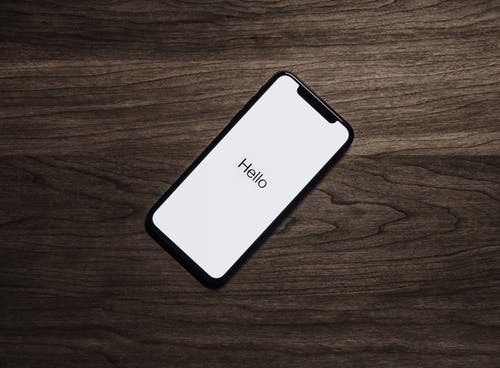Apple is undergoing studies to see if mental health can be detected on users’ phones.
Apple is currently working on a project that could help iPhones detect symptoms of anxiety, depression, and cognitive decline using digital features including a user’s health data, physical activity level and sleep patterns. The efforts follow research partnerships with the University of California, Los Angeles, which is studying stress, anxiety and depression, and pharmaceutical company Biogen, which is studying cognitive impairment. “Seabreeze” is Apple’s code name for the UCLA project and “Pi” is the code name for the Biogen project.
Digital clues that these health conditions are present on iPhones may include an analysis of facial muscle movement, how a person speaks, how often a person walks and at what pace, heart and respiration rates and sleep cycles. Apple may also include the speed of the user’s typing, frequency of typing errors and the content of what they type. Mild and progressive cognitive impairment could serve as an early sign of Alzheimer’s or even schizophrenia.
Of course, many people who are privy to the tech company’s intentions have some privacy concerns. To address these, Apple is programming iPhones to include algorithms that work only on users’ devices and don’t send the data to Apple servers.

The UCLA study, according to preliminary planning documents, will track the data of 3,000 volunteers starting later this year. Project “Pi” will recruit approximately 20,000 people to participate over the next two years, half of which will have already exhibited risk factors for cognitive impairment. The study will determine which technology is most helpful for each group.
The major challenge the tech giant is facing is creating algorithms that are reliable enough to accurately diagnose specific conditions. This could be time-consuming, and it is still unclear whether the programming will be reliable enough to move forward. Chief Operating Officer of Apple, Jeff Williams, has shared his plans with employees and remains “optimistic.”
Cases of depression and anxiety, as well as dysregulated sleep patterns and other mental health conditions, have skyrocketed as a result of the coronavirus pandemic. The Centers for Disease Control and Prevention (CDC) reported earlier this year that “the spread of disease and increase in deaths during large outbreaks of transmissible diseases is often associated with fear and grief. Social restrictions, limits on operating nonessential businesses, and other measures to reduce pandemic-related mortality and morbidity can lead to isolation and unemployment or underemployment, further increasing the risk for mental health problems.”
The federal agency, to “rapidly monitor changes in mental health status and access to care during the COVID-19 pandemic” partnered “with the U.S. Census Bureau to conduct the Household Pulse Survey (HPS),” the CDC reports. The survey conducted “describes trends in the percentage of adults with symptoms of an anxiety disorder or a depressive disorder and those who sought mental health services.” The agencies found that during “August 19, 2020–February 1, 2021, the percentage of adults with symptoms of an anxiety or a depressive disorder during the past 7 days increased significantly (from 36.4% to 41.5%), as did the percentage reporting that they needed but did not receive mental health counseling or therapy during the past 4 weeks (from 9.2% to 11.7%).”
This rapid increase in the need for mental health services has led to a great number of new programs and protocols designed to address the crisis. Clinics have wait-listed patients seeking care, which creates a need for alternatives such as technology-focused initiatives.
Sources:
iPhone to Detect Depression; Schizophrenia & COVID Death; Use Person-First Language
iPhone could detect depression, anxiety, and cognitive decline – Apple studies


Join the conversation!